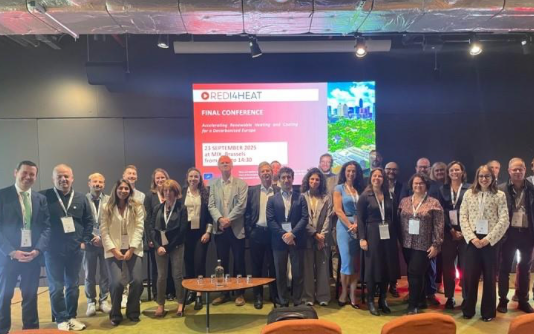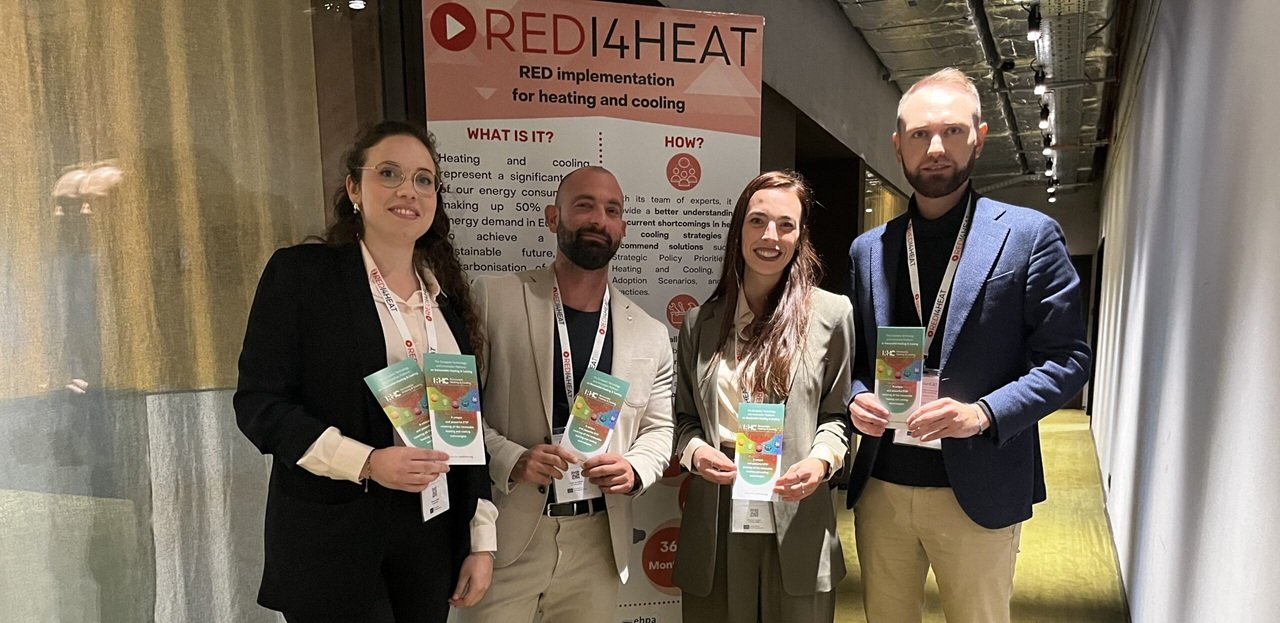The REDI4HEAT project, funded by the EU under the LIFE Programme, concluded on 23 September 2025 with a high-level event in Brussels. The initiative worked over three years to support the decarbonisation of heating and cooling across five Member States — Greece, Germany, Poland, Portugal, and Croatia — by strengthening National Energy and Climate Plans (NECPs) and providing practical policy tools.
Organised alongside the 2025 Heat Pump Forum and Awards, the final conference marked the launch of REDI4HEAT’s Heat Transition Toolbox & Knowledge Sharing Centre. This online platform offers 25 policy measures, assessment guidelines, training resources, and best practices to support EU Member States in decarbonising heating and cooling in district, residential, and non-residential sectors.
Project coordinator Rosie Christodoulaki highlighted the role of NECPs as essential instruments for aligning national actions with EU energy and climate targets: “The NECPs are proving to be a powerful tool for both the EU and its Member States to accelerate climate action and the energy transition, especially in this crucial decade.”
Through a combination of advisory services and capacity-building activities — including workshops in Warsaw, Thessaloniki, Zagreb, and Braga, and participation in the Decarb Cities Conference — REDI4HEAT aimed to bridge the gap between Europe’s climate goals and the heating and cooling sector, which is responsible for 40% of CO₂ emissions in Europe.
Two panel discussions at the event addressed the effectiveness of EU energy policies and the future of the sector. Topics included renewable heating adoption, fossil fuel phase-out challenges, fair taxation, municipal planning, electrification, carbon pricing, and the importance of skills development and consumer engagement. Participants emphasised the need for direct support to local authorities and better policy coordination.
The event also featured presentations by project partners such as Solar Heat Europe (SHE), ADENE, and CRES, as well as representatives from EGEC, EHPA, and EHP, who contributed to the dissemination of the RHC-ETIP platform. The Hellenic Passive House Institute presented examples of innovative building practices supporting decarbonisation goals.
REDI4HEAT’s results are expected to support upcoming legislative transpositions of the Energy Efficiency Directive (EED) and the Energy Performance of Buildings Directive (EPBD), offering guidance to policymakers aiming to align with the EU’s 2030 climate targets.

